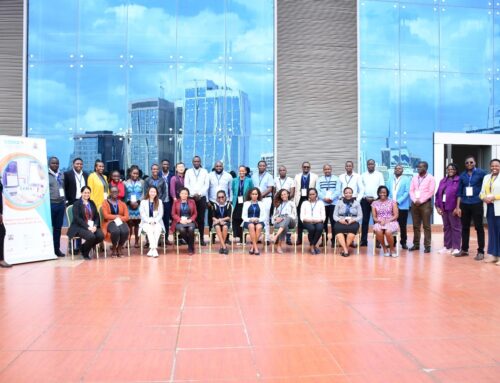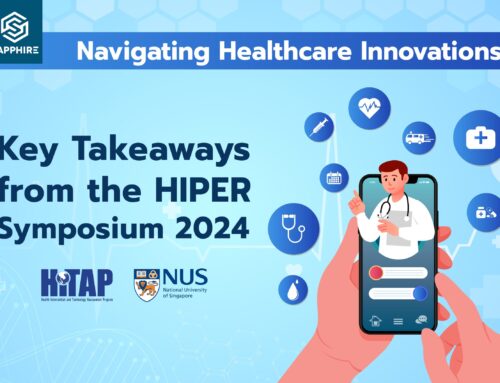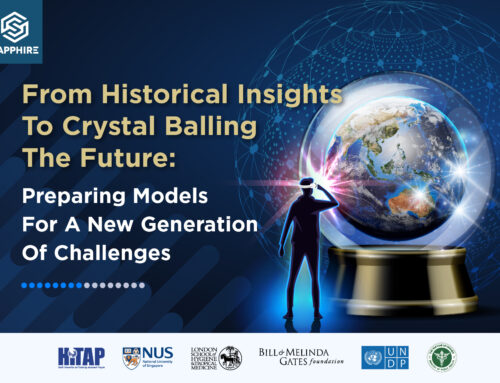Development cannot be contained in a numerical measure of Gross National Product/Gross Domestic Product (GNP/GDP), conceding this the UN gave a universal call to its member nations for the Sustainable Development Goals (SDGs). The SDG 3 explicitly states “ensuring healthy lives and promote well-being for all ages,” and under this umbrella falls the Universal Health Coverage (UHC).
With the World Health Organization (WHO) emphasizing that “all roads should lead to universal health coverage” and the United Nations placing the aim to achieve the SDG’s by 2023, UHC has become a pressing priority in the global community. In response, Indonesia in early 2014, launched its universal healthcare program, the Jaminan Kesehatan Nasional (JKN), which will cover all Indonesians by 2019. The costs of the program are estimated to be around USD 13-16 billion per year until the JKN is fully rolled out [1]. Thus, for methodical utilization of resources and sustainability of the scheme, the Health Technology Assessment Committee (HTAC) came to the fore, with technical support from HITAP.
HITAP & HTAC
Previously, in close alliance with HITAP, the committee successfully completed three studies for the country, namely: Economic Evaluation of Package of Essential drugs for Non-communicable diseases (PEN) Program, Review of HTA studies on treatment of end-stage renal disease (ESRD) and Pulmonary Arterial Hypertension (PAH), and Considering the Inclusion of Off-Label Medicines in UHC Package. All the 3 studies have substantially contributed towards the making of a system of quality evidence-base for policymakers in Indonesia.
Currently, HITAP is technically assisting the Indonesian teams with 4 studies on Health Technology Assessment (HTA). The outcome of the last visit (in April) was topic finalization and provisional proposals for the four teams respectively. This ( 23rd August to 25th August 2017 ) was a follow-up visit intended to appraise progress, provide technical support to the local teams and meliorate the studies overall. The composition of the teams conducting these studies is diverse; the former two are from the HTAC, mostly doctors & medical practitioners and the latter from universities, mostly economists, pharmacists and academics.
Progress so far
Under the HTAC the first study aims to provide policy recommendations for approving the use of Nilotinib in Indonesia. Contrary to the practice guidelines where Imatinib is advocated as the first line medicine, Nilotinib use is currently higher than it should be. An evidence is required to investigate the cost-effectiveness of Nilotinib as the first-line drug in the treatment of Chronic Myeloid Leukaemia (CML). Thus, the research question for this study is “The process of approving Nilotinib reimbursement and pattern of treatment for chronic myeloid leukaemia in Indonesia”. The next team is investigating whether insulin analogue provides any additional clinical benefit compared to human insulin, keeping in mind the effectiveness and health outcome. With an aim to provide evidence to policymakers on usage and reimbursement of insulin analogue, their study topic is “Systematic review of the effectiveness of insulin analogues compared to human insulin for treatment of type 2 diabetes”.
The participants from the Universitas Indonesia (UI) & University of Gadjah Mada (UGM) are investigating the cost-effectiveness of two high-priced drugs – cetuximab and bevacizumab. Cetuximab is one of the most expensive drugs for the treatment of metastatic colorectal (MC) cancer; between the years 2014-2016 the claim amount was roughly IDR 6.5 Billion for approximately 32 patients. Thus, the objective of this study is to assess the clinical effectiveness and economic evaluation of cetuximab in the treatment of metastatic colorectal cancer. The research question here is “Clinical effectiveness of EE of cetuximab on metastatic colorectal cancer”. For the latter, i.e. Economic evaluation of bevacizumab in addition to chemotherapy for metastatic colorectal cancer (mCRC) in Indonesia, the study has been undertaken by University of Gadjah Mada. It probes the following questions: Does bevacizumab for mCRC have good value for money? Is bevacizumab cost-effective at the current price and at what price should bevacizumab be provided in the Indonesia setting? What is the budget impact of the addition of bevacizumab in chemotherapy for mCRC in Indonesia?
In the past HITAP’s team of experts has been supporting the four teams remotely via teleconference. The objectives of this visit mainly encompassed the following: For the teams from HTAC, we helped them organize their literature review, formulate questionnaires and collect additional documents from developed and developing countries. For the second team, our experts helped them with ‘keywords’ or the ‘search term’ for article search on various journals so that the study adheres to international guidelines. The main aim was to standardise these studies and make them comparable to international benchmarks. For both the teams from the universities UI & UGM we supported them to construct economic models and review the models with dummy variables. Overall, the four teams are well placed and the studies are most likely to conclude by December this year.
A small leak can sink a great ship; and for a developing country like Indonesia where resources are scarce and smart decisions about allocation of funds, pricing, identifying & reducing gaps in current practices, are crucial for forging a steady journey ahead. The evidence generated from the four studies will help the policy makers in formulating targeted policies with a clear-cut vision, which will translate to improving the health outcomes in the country and eventually lead to the economic robustness of Indonesia.
In conclusion, although, no single panacea exists to answer the pitfalls in public health, in my opinion, wise use of resources and prioritizing interventions is número uno. To quote David Bloom “population health is a fundamental cornerstone of a vibrant economy… Health can move the economic meter very far and very fast.”
[1] “Indonesia’s universal health care goals”, Oxford Business Group, 2015, Available at http://www.oxfordbusinessgroup.com/overview/indonesias-universal-health-care-goals




